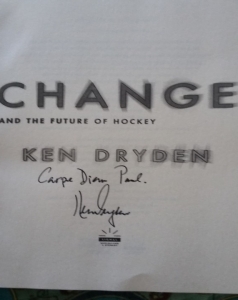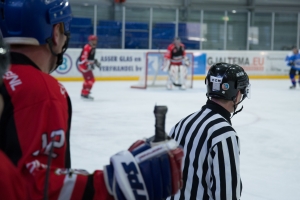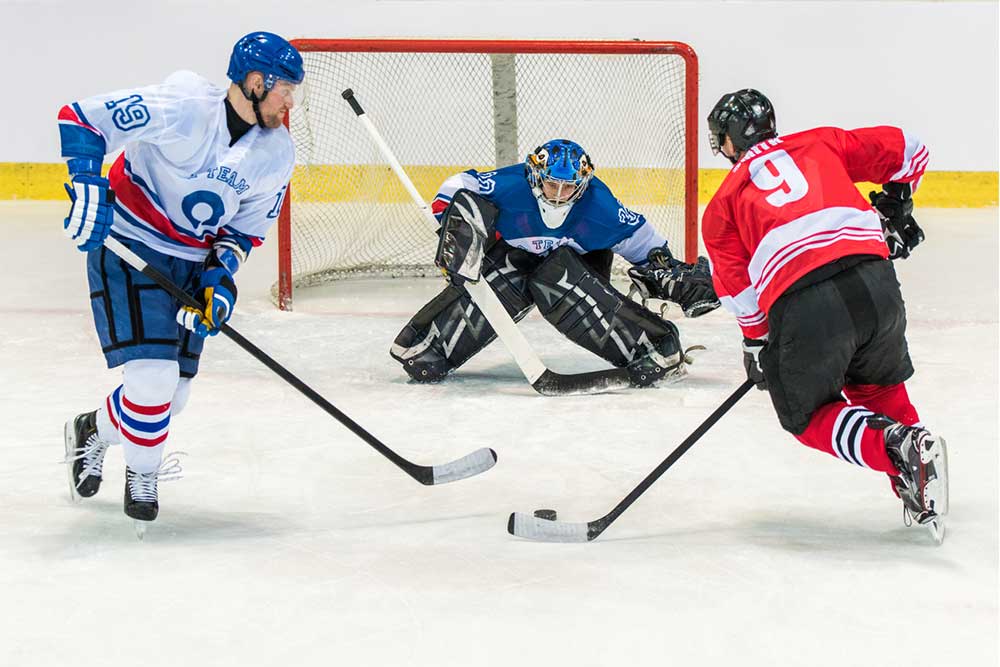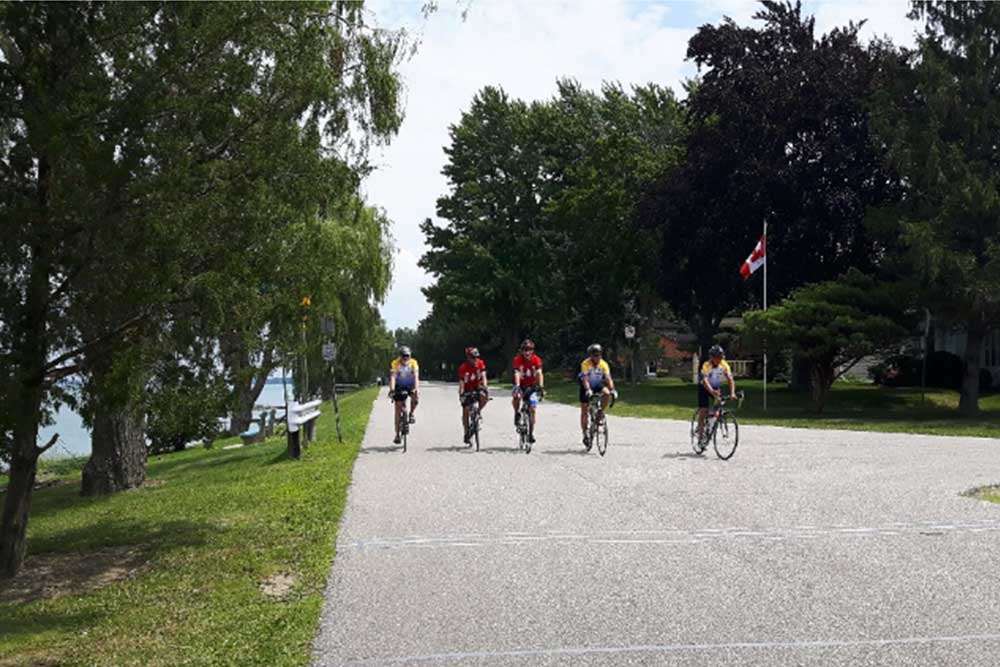Carpe Diem, The Series: “TOO OLD TO HAVE HEROES?”

Paul Stevens
Last week, there was a book signing event at the local library here in Sarnia. That sort of thing usually doesn’t hit my personal radar screen, but this particular one caught my attention. The author was Ken Dryden, a former National Hockey League player who was one of my favorites in my earlier years, even though I was (and remain) a diehard fan of the Toronto Maple Leafs. He played for the dreaded arch rivals, the Montreal Canadiens. But to limit Mr. Dryden’s description as only a hockey player is to do a great injustice.
The Stuff Heroes Are Made Of
Take a deep breath and review a summary of Ken Dryden’s life and accomplishments:
- Born 1947 in Hamilton, Ontario, raised in Toronto
- Obtained his BA degree from Cornell University in 1969 where he was granted a scholarship
- Goaltender for the Cornell Big Red hockey team and won the NCAA championship in his graduating year
- Drafted into the NHL in 1964 but had his rights traded to the Montreal Canadiens
- Played six late-season games with Montreal in 1971, recording an incredibly low goals-against-average of 1.66. As a result, he supplanted Montreal’s all-star goalie, Rogie Vachon for the playoffs and the team went on to win the Stanley Cup, with Ken Dryden winning the Conn Smyth Trophy as the MVP for the playoffs
- Still qualified as a rookie for the 1972 season, he won the Calder Trophy as the NHL’s Rookie of the Year
- Was the primary goaltender for the famed ‘Summit Series’ in September 1972 where Canada defeated the Soviet Union in what was the Canadian version of the Cold War
- At the end of the 1973 season, Mr. Dryden left the Montreal Canadiens in a contract dispute and used his time to obtain his law degree from McGill University in Montreal. And even returned for the 1974/75 season
- He was a Stanley Cup winner six times – 1971, 1973, 1976, 1977, 1978, 1979
- He was a first-team all-star five times – 1973,1976, 1977, 1978, 1979
- Won the NHL’s Vezina Trophy as the league’s top goaltender five times
- In between outstanding on-ice performances, he was President of the NHL Players Association 1972-1974
- Retired in good health at the end of the 1979 season, aged 31
- Had his No. 29 retired by the Montreal Canadiens and his No. 1 jersey retired by Cornell, one of only two players to have been so honoured by the University
- His NHL career included 258 wins against only 57 losses, along with 46 shutouts
- Inducted into the Hockey Hall of Fame in 1983 and voted as one of the “Greatest 100 Players of All Time” by a panel of sportswriters.
Related Article: 6 Exercises To Get Ready For Hockey
With Heroes, There’s Always More
Not bad for a short career, but wait, there’s more:
- Wrote several award-winning books
- He was the color commentator with Al Michaels of the ABC Network for the USA’s “Miracle on Ice” hockey game against the Soviet Union during the 1980 Winter Olympic Games in Lake Placid
- President of the Toronto Maple Leafs Hockey Club from 1997-2004
- Federal Member of Parliament 2004-2011 (and also a Cabinet Minister for several years)
- Granted the “Order of Canada” in 2012 which is the highest civilian recognition that is granted by the federal government
- Honourary doctoral degrees granted by three Canadian universities (University of Ottawa, Saint Mary’s University, and University of Winnipeg)
So not a bad list accumulated to date! It left me wondering, “What I have I done so far?” Well, I learned to juggle. That leaves me a bit short, however, when I compare myself to the long list accumulated by Mr. Dryden.
Looking at Mr. Dryden, he’s a fairly big guy, coming in at 6’4”, which in his day was very large for a goaltender. He also commands a deliberate, thoughtful speaking manner. I remember after one of his many Stanley Cup victories, the post-game interviewer asked him his thoughts of winning the championship. In his usual deadpan, monotone delivery, he responded, “This is one of the most exciting days of my life.” You almost had to check for a pulse but such was his style; never flamboyant, loudmouthed or even excitable. He always seemed so damned composed!
He Writes, Too
At the age of 70, Ken Dryden is still going strong, and his book signing was to introduce his latest work entitled “Game Change – The Life and Death of Steve Montador and the Future of Hockey”. Steve Montador was a former hockey player who died at the far too young age of 35 in 2015 from complications arising from Chronic Traumatic Encephalopathy, or CTE as it has become known. Interestingly, Mr. Dryden never knew or met Steve Montador, but used his story as a backdrop for a discussion about the dangers of concussions in sports. Steve was not a ‘goon’ but a rough and tumble journeyman who played 571 NHL games for several teams over 11 seasons.
About 350 people showed up at the library’s main hall and during Mr. Dyrden’s presentation for his latest book. He spoke for about an hour without the use of notes, video prompts, or any other form of props or assistance. All this without so much as an ‘um’ or ‘ah’, or any other form of a protracted pause. And he delivered a cogent discussion on a topic that is gaining increased recognition in the sports world and elsewhere.
Given his list of accomplishments as outlined above, it really should come as no surprise that Mr. Dryden could deliver such an articulate presentation without interruption. Towards the end of his talk, I recall attempting to think of another former sports personality that would be on the same level of overall achievement. I am still noodling on that one and I have not come up with any comparables.
Related Article: Concussions in Youth Ice Hockey
Reducing Concussions in Professional Sports
Mr. Dryden made what I thought was the key summary point of his presentation – the risk of concussions in hockey can be greatly reduced with some simple rule changes and rule enforcement. That is, hits to the head can be consistently penalized and players will learn and adjust. It has been done successfully with other elements of the game. He compared this to the game of football, where body contact is such an intrinsic part of the game that trying to eliminate head shots would require a tidal wave of change to the way the game is played.
After his presentation, Mr. Dryden took questions from the audience and all questions were based on his take on concussion prevention and maintaining the quality of the game. Given his Hall of Fame background, there were no questions concerning his hockey career. The focus was on the subject of concussions. He certainly didn’t see that eliminating hits to the head would in any way lessen the appeal of the game. There were no arguments to the contrary from those in attendance.
After the Q&A session, Mr. Dryden made himself available to sign copies of his book, of which I was a proud owner (thanks Virginia!). I waited 45 minutes for my chance to shake his hand and have him personalize my book, as shown in the photo below. When it was finally my turn to exchange pleasantries, I said to Mr. Dryden, “The last time I had to wait this long to say ‘Hello’ to anyone was when I was about six years old and I was wanting to see Santa Claus, but both times, the wait was worth it!” We had a bit of chuckle about that and I was very pleased to have taken the evening to listen to a very accomplished gentleman who happened to be a very fine hockey player along the way.
I may be too old to have heroes, but Ken Dryden is as close as it gets for me.
Your friend, Paul.
And remember – Carpe Diem (but in relaxed sort of way)!

Even Ken Dryden understands “Carpe Diem”!You Might Like:

















